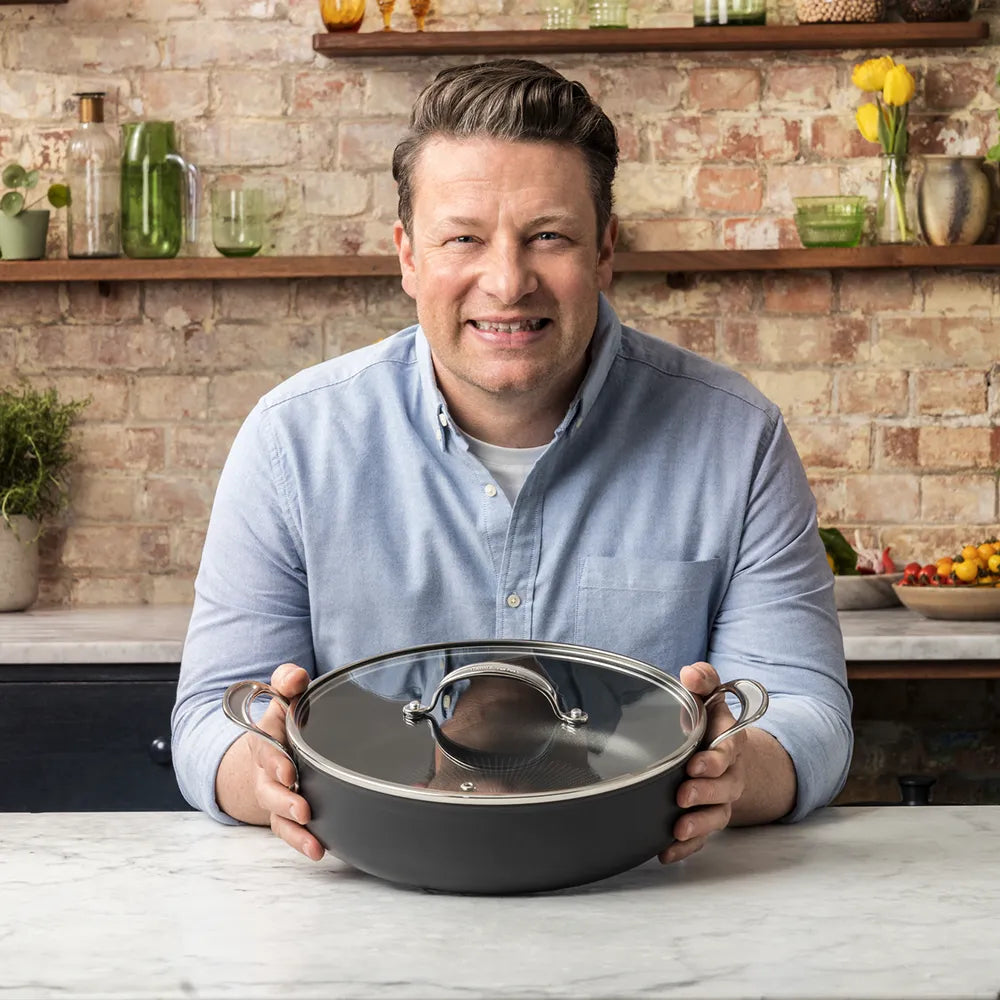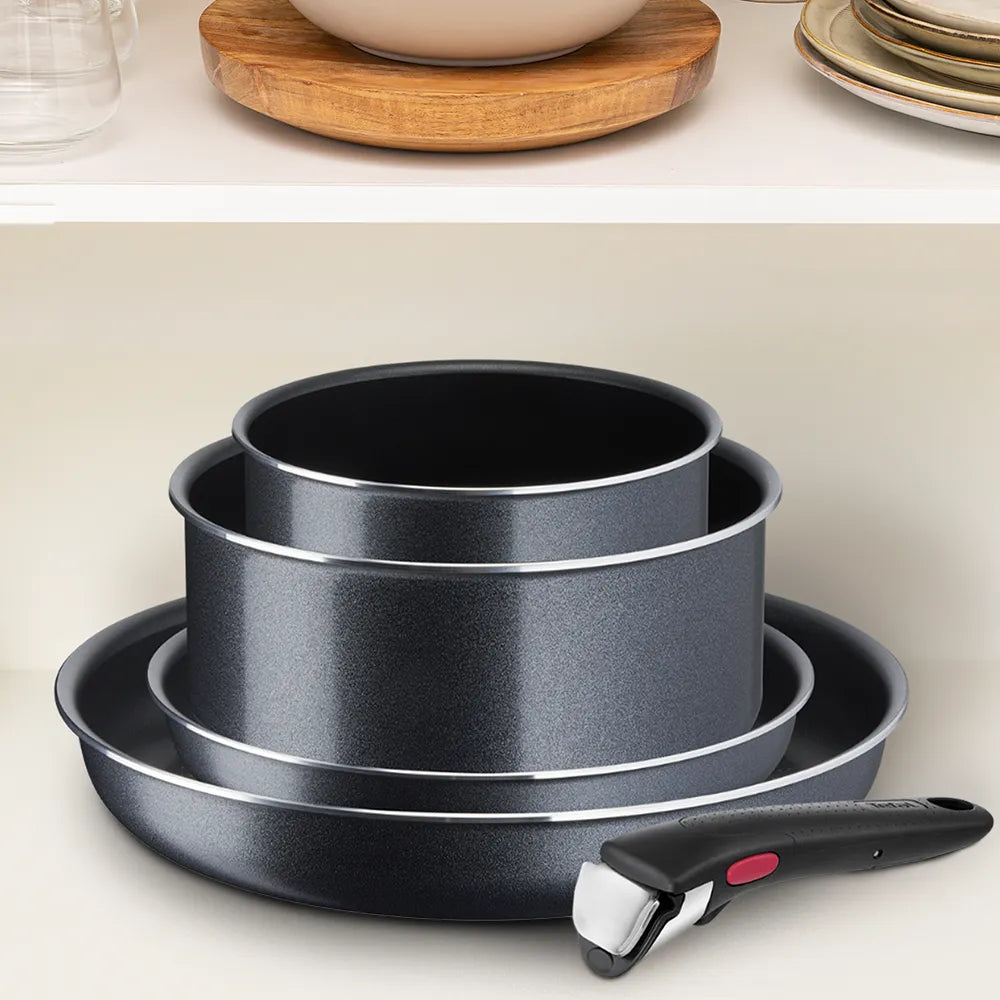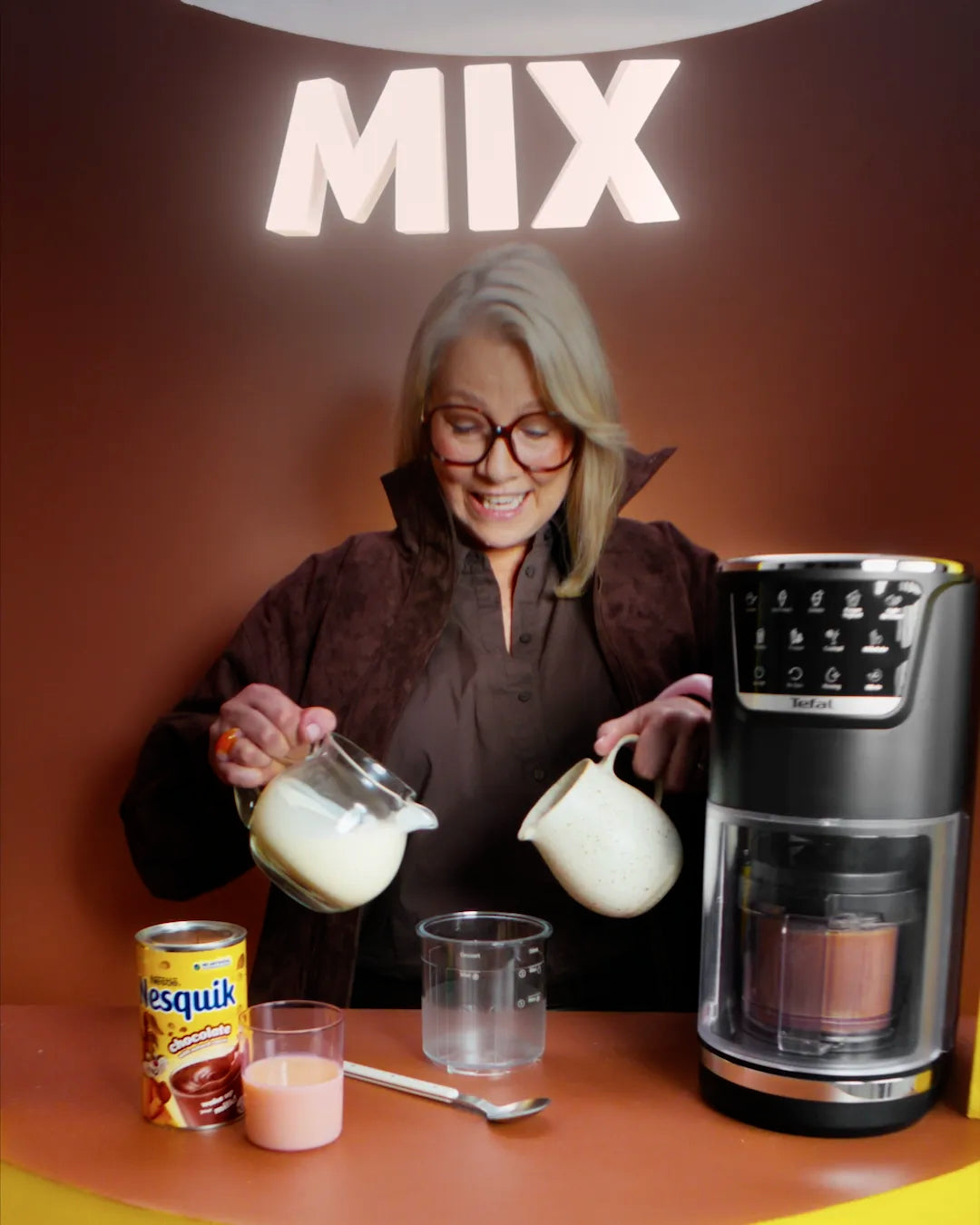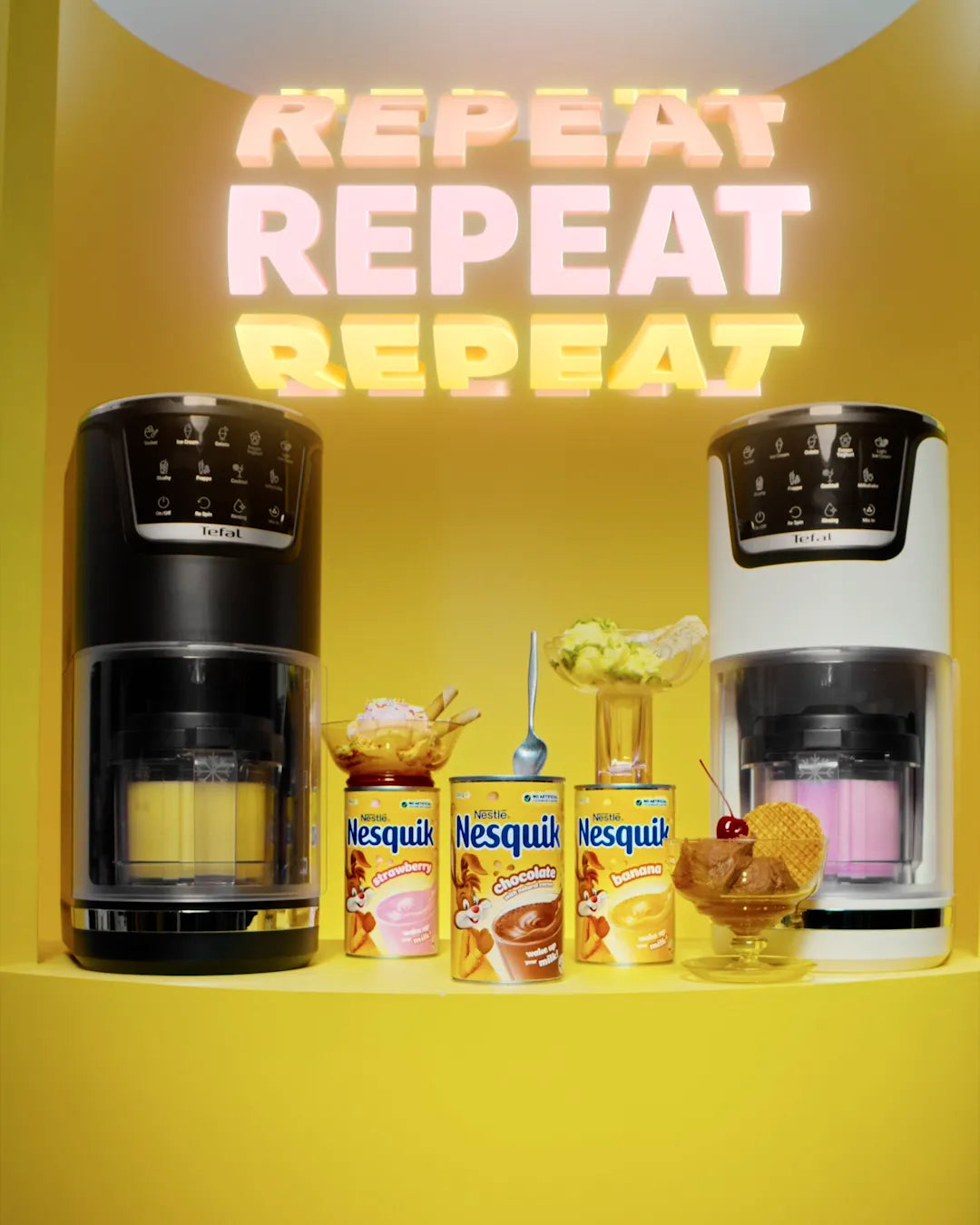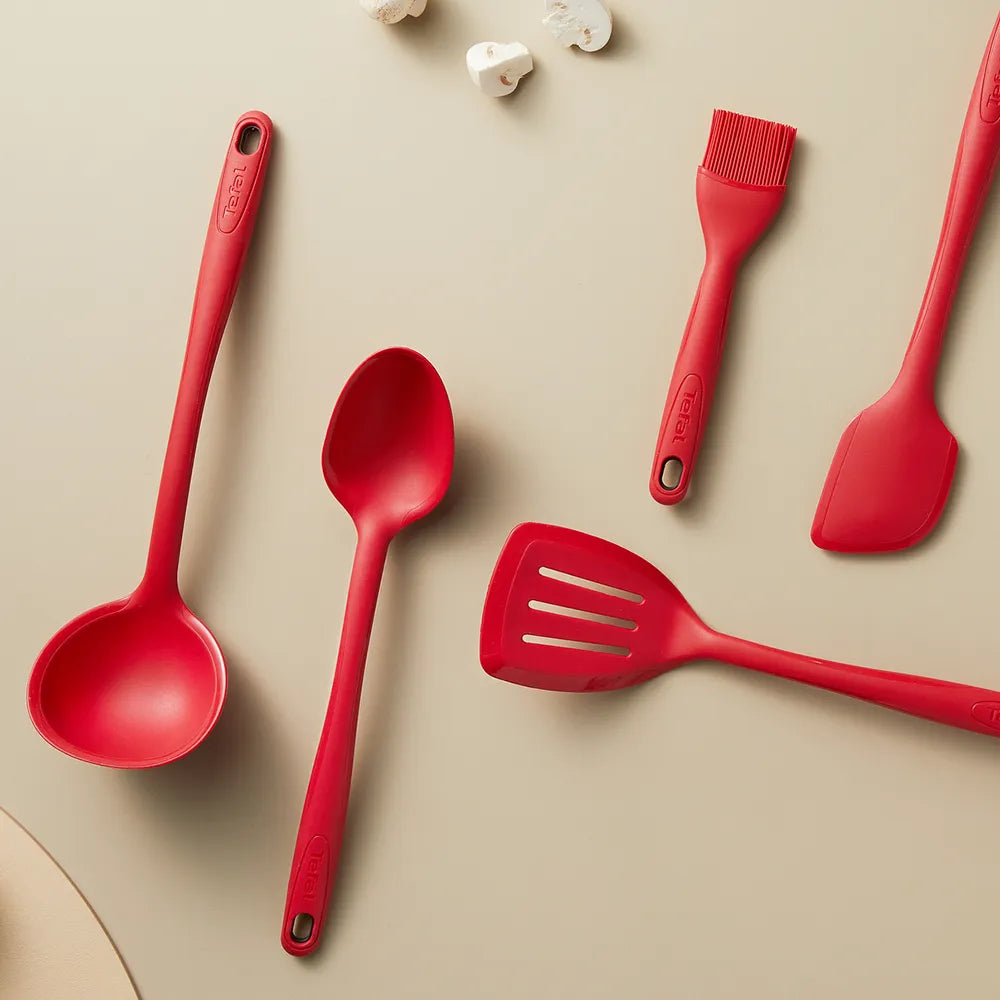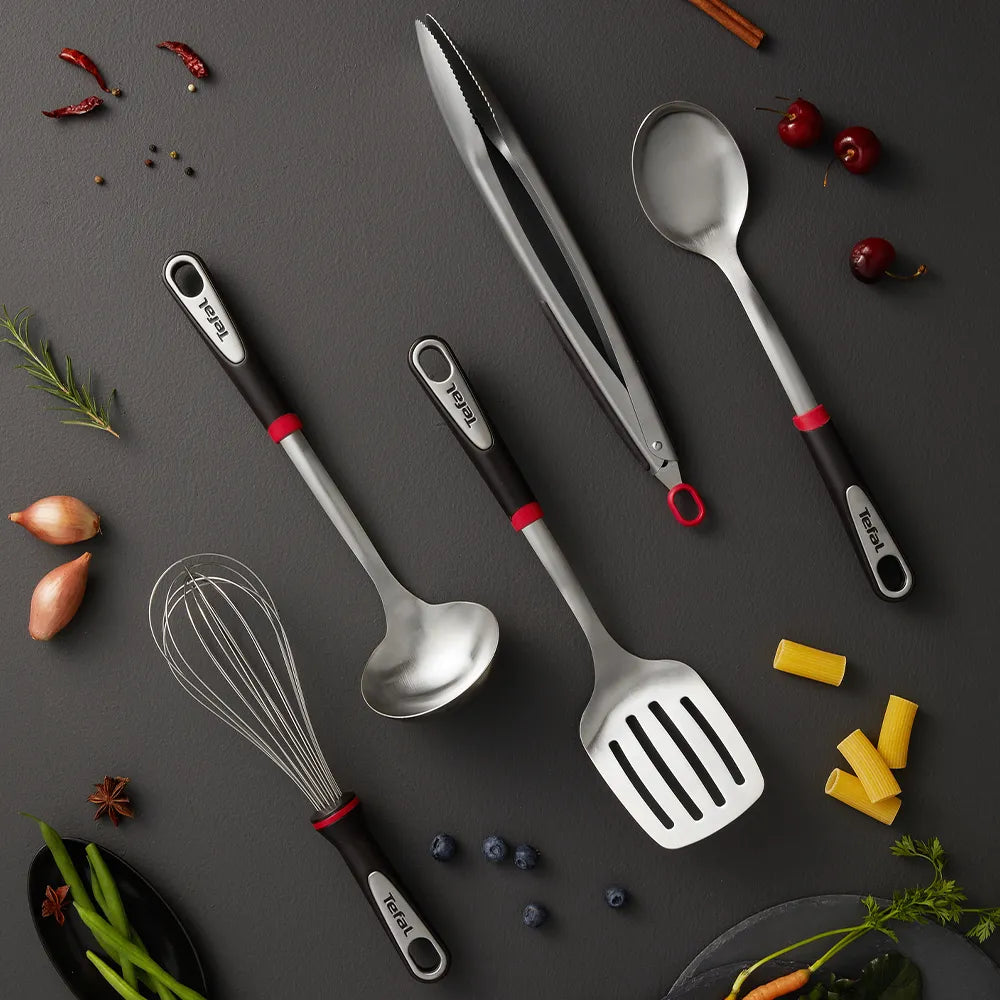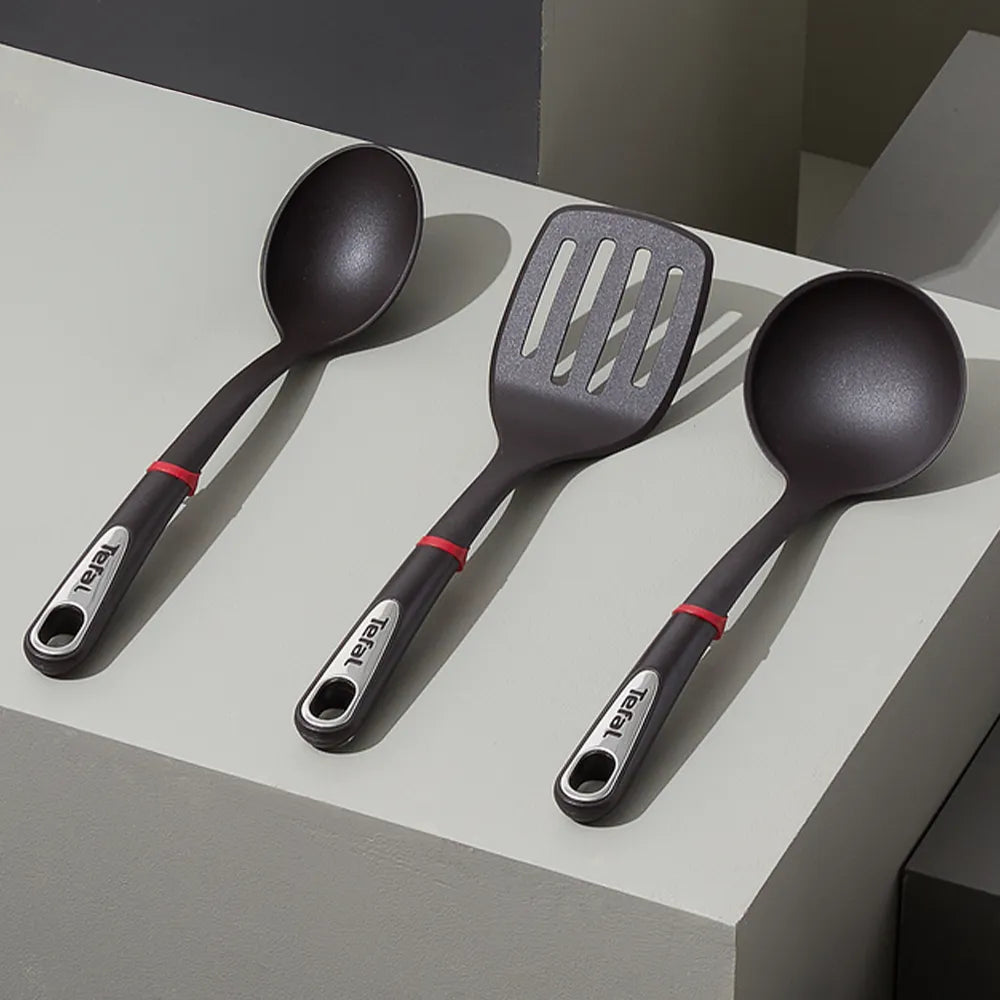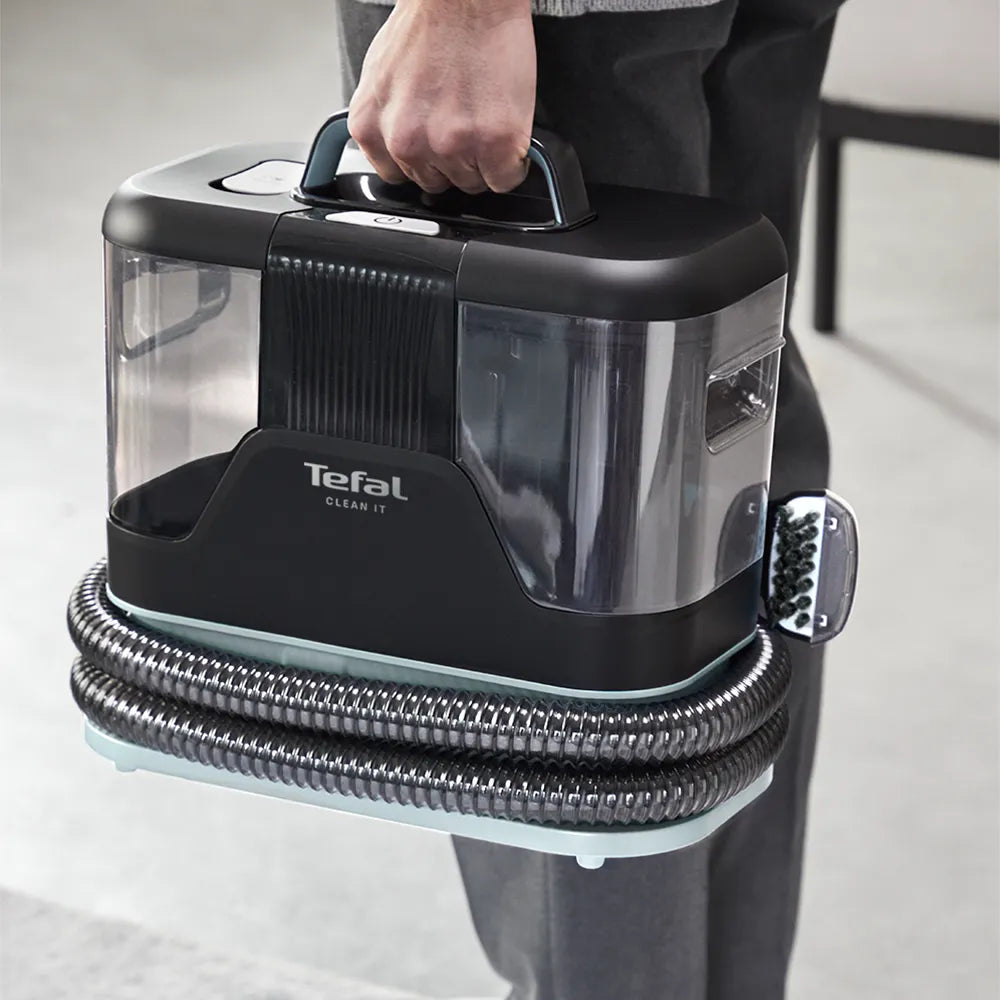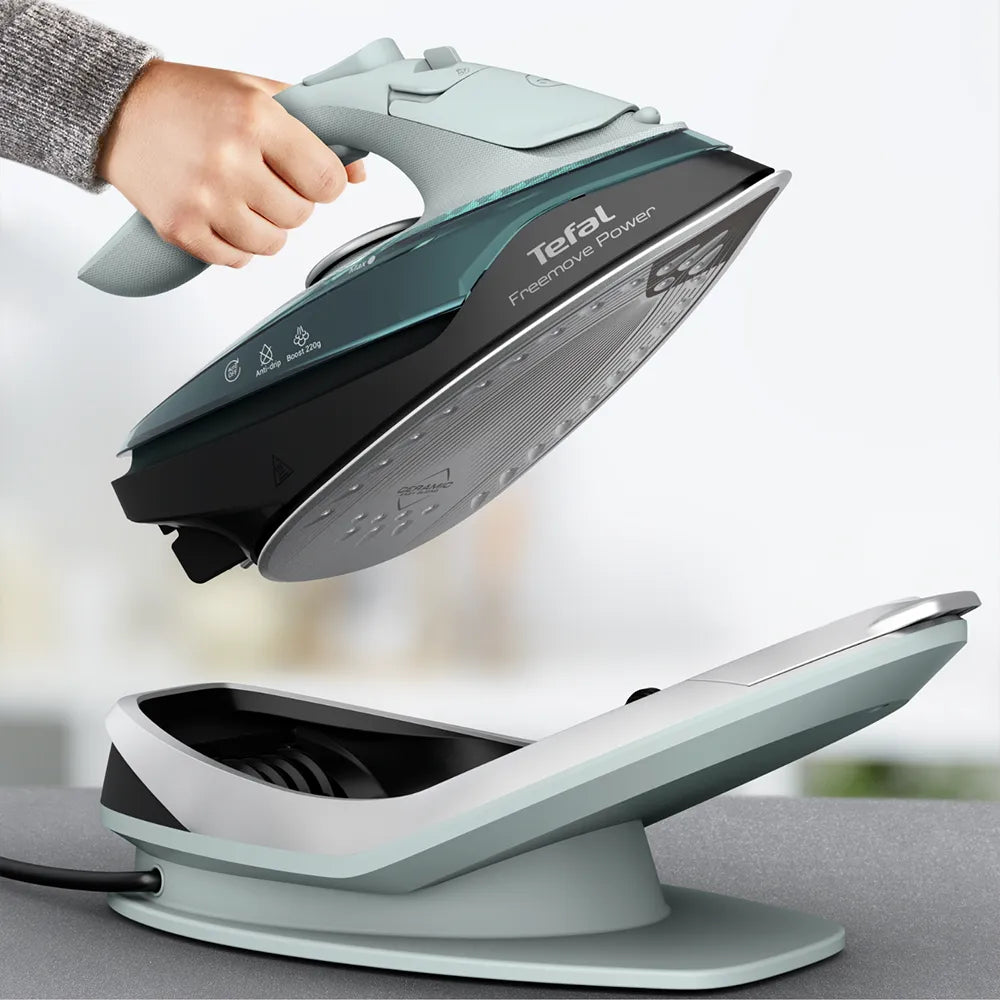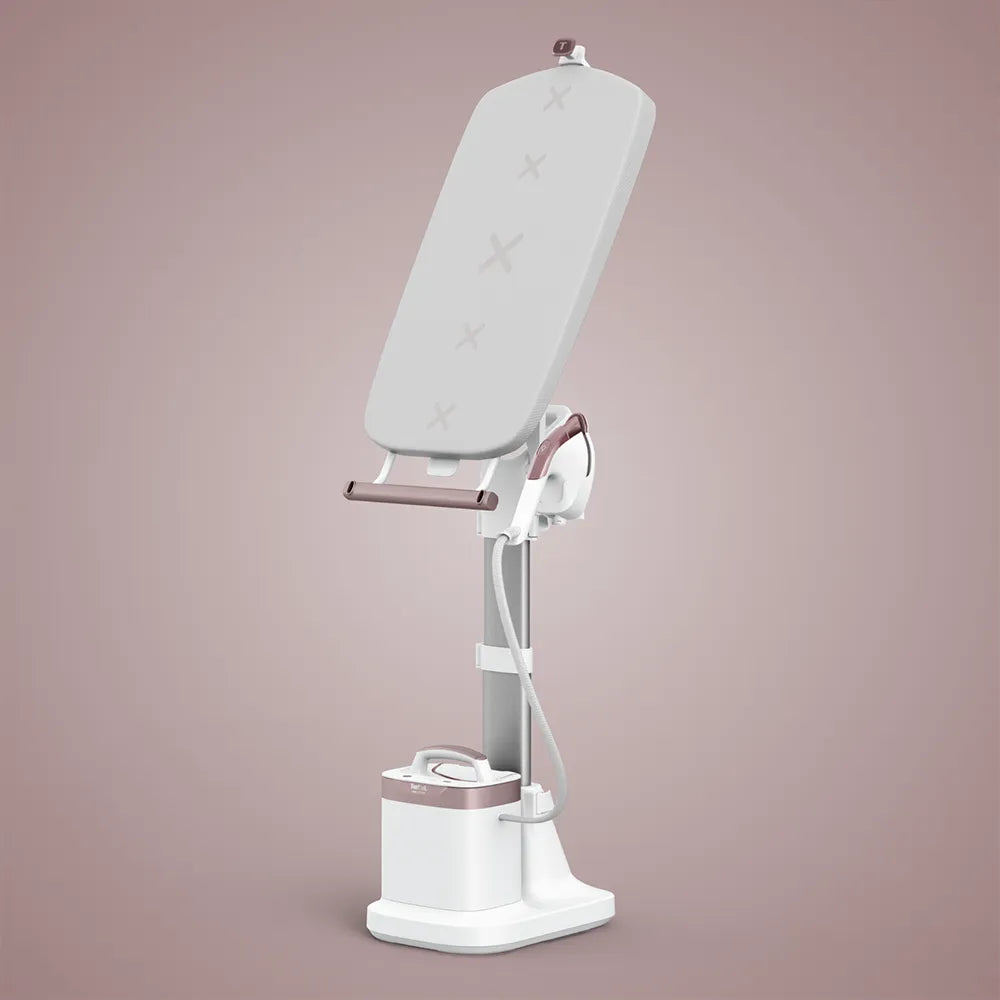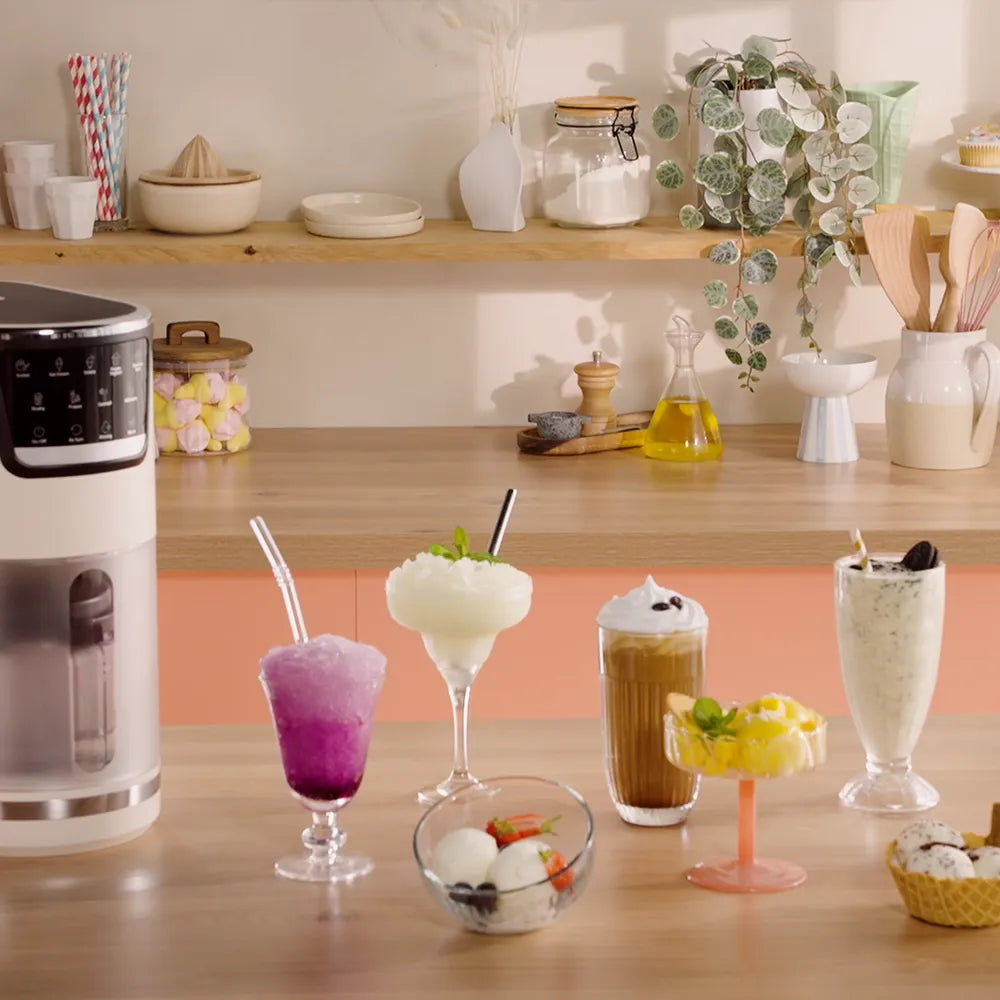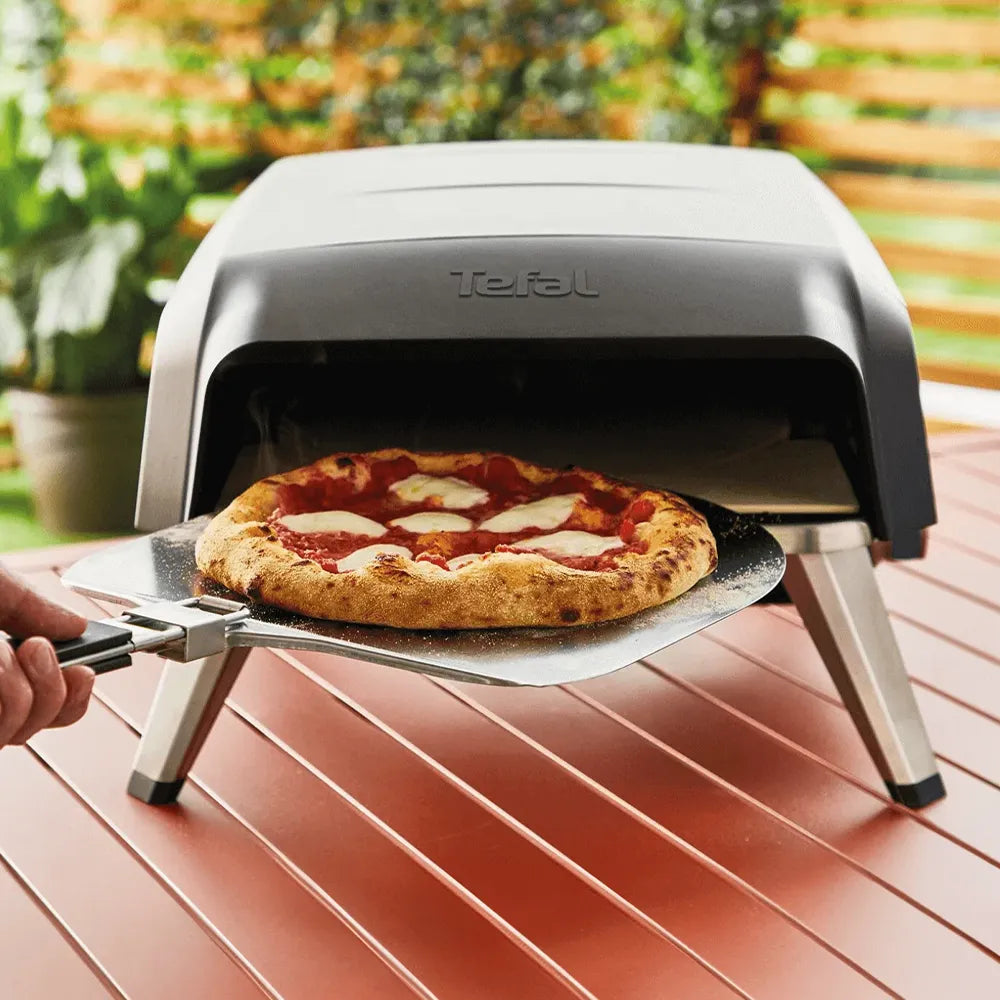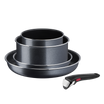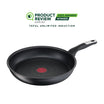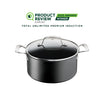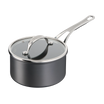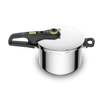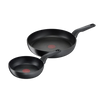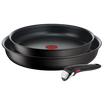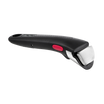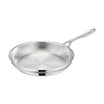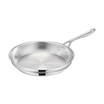Tefal Non-stick
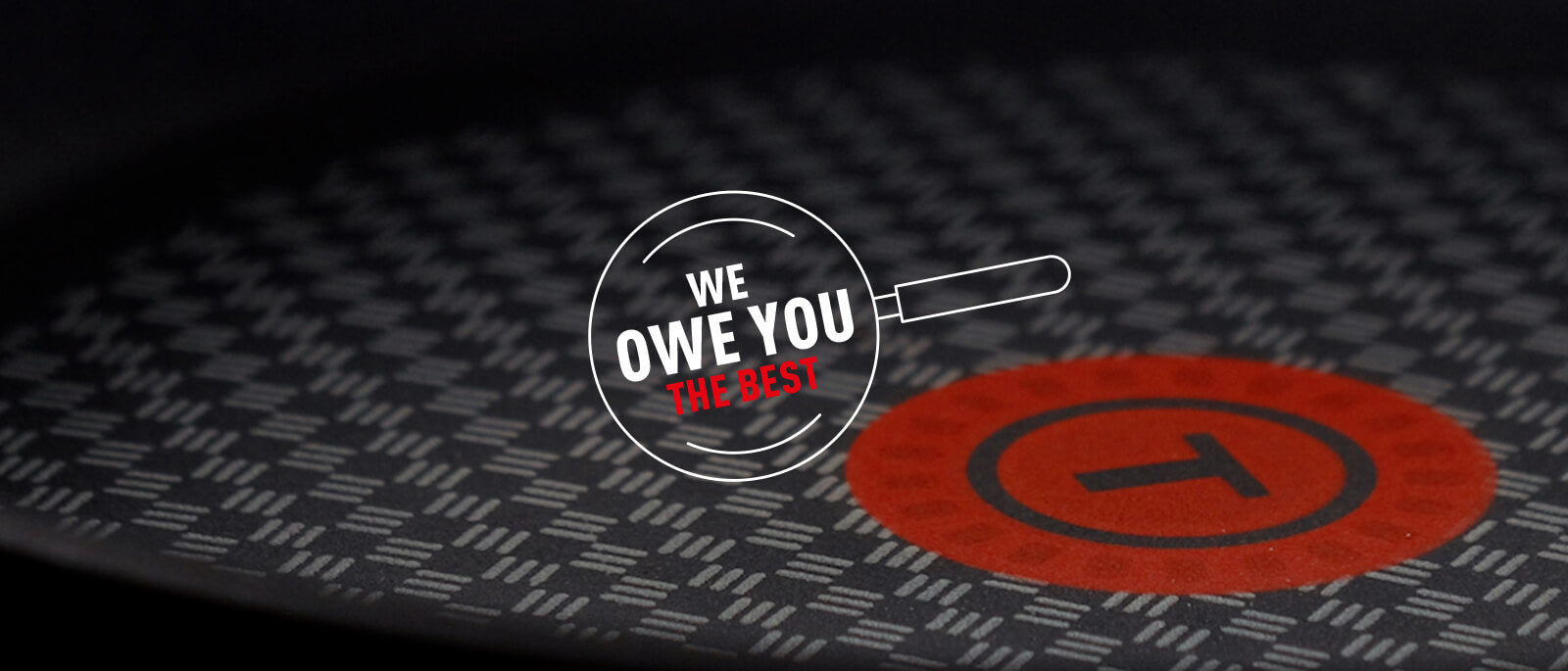
PTFE: What is it?
Polytetrafluoroethylene, to give it its full name, is a composite polymer discovered by chemist Roy J. Plunkett (1910-1994) in 1938. Studies carried out by health bodies in Europe and the US have demonstrated that PTFE is harmless. It is safe, even if ingested accidentally.

Safe, fat-free cooking
PTFE is safe for everyone.
PTFE meets our requirements in terms of quality, performance and safety. At Tefal, we control every stage of production and the coatings we use are exclusive to us.
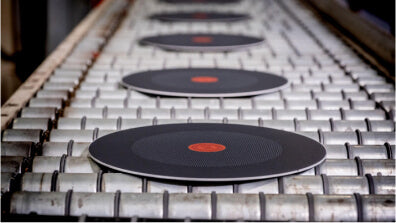
Tefal pans are NOT made of Teflon™
In the past, Tefal used TEFLON™ brand coatings for its non-stick pans. However, when the SEB Group bought TEFAL in 1968, it wanted to manufacture its own non-stick coatings in order to better control and monitor all stages of production.
PTFE: Its Characteristics
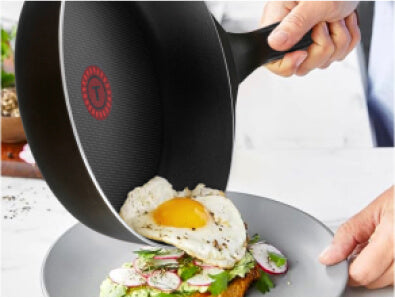
The most non-stick material
Its non-stick properties are great for cooking the most delicate foods. There is no need to add fat in the pan and this coating allows the best cooking process for perfect recipes every day.
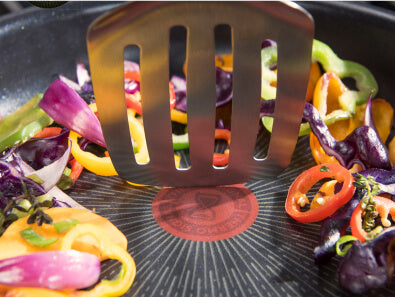
Tested and approved
Studies carried out by health bodies in Europe and the US have demonstrated that PTFE is harmless. It is perfectly safe, even if ingested accidentally. In fact, its molecules are too large to be absorbed by the body.
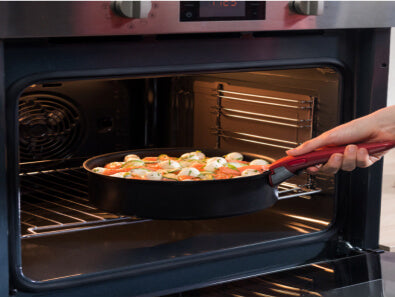
Resistant
Hot or cold, PTFE remains stable, including at higher temperatures usually reached during cooking.
Tefal: Safe Products Guaranteed
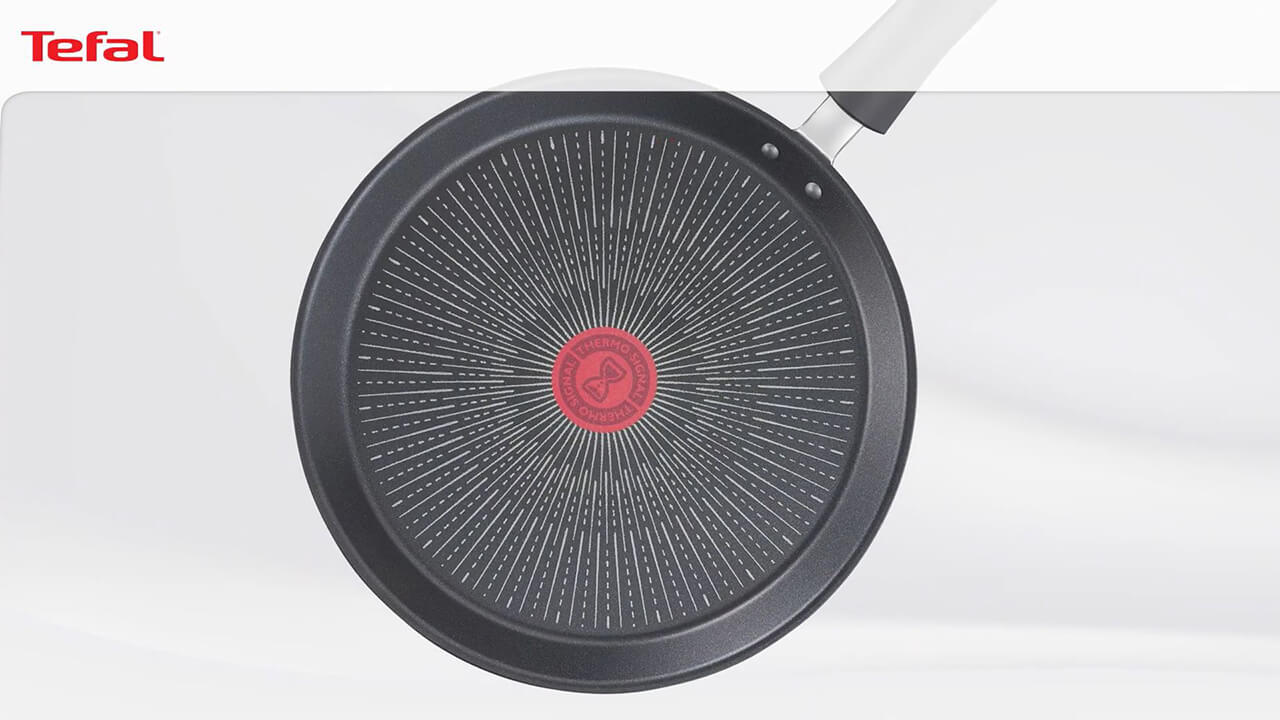
The PFAS family
Per- or polyfluoroalkyl substances (PFAS) refer to a large family of substances (around 5,000).
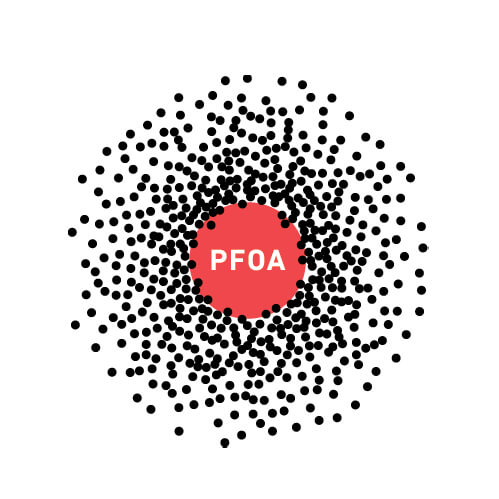
Non-polymers
These can cause problems as they are bio-cumulative; in other words, they can accumulate in the human body (as with PFOA or PFOS, for example). This is not the case with the PFAS polymer.
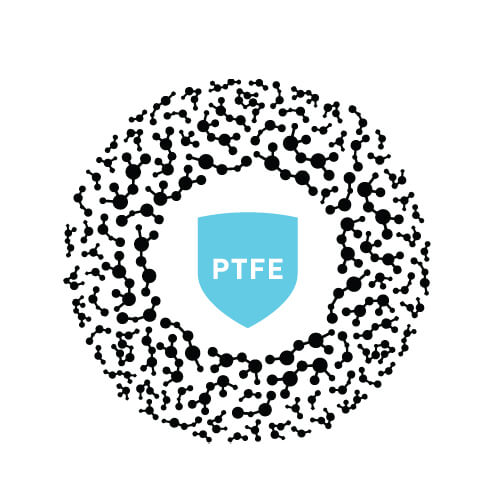
Polymers
Like PTFE, they are not bio-cumulative, but inert and do not to present any danger to human health.

PTFE, a safe material
PTFE has been recognised by health authorities such as the World Health Organisation and the European Food Safety Authority (EFSA) as a material which is safe for human health and suitable for contact with food. Because of its exceptional non-stick properties, Tefal has chosen PTFE coatings for its pans and pots.
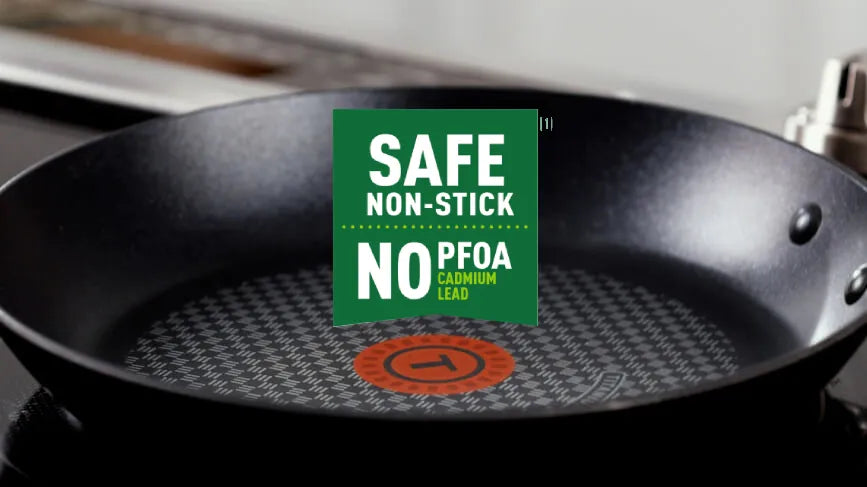
Our Tefal non-stick coatings are PFOA-, lead- and cadmium free*
*Stricter tests than those required by current regulations regarding contact with foodstuffs. PFOA-free in accordance with current regulations. Lead- and cadmium-free (Ph- and Cd-free) means that no lead or cadmium has intentionally been added to the coatings or detected during tests carried out by external laboratories.
Precaution Eliminates Any Danger
At Tefal, our team monitors European and national health regulations.
We actively monitor scientific and regulatory developments to offer you products that are as safe as possible. We rely intrinsically on applying a principle of precaution, which guides the way we design and develop our innovations. This is why we have chosen PTFE for our coatings.
Frequently Asked Questions
Key Elements:
- Groupe SEB does not use any PFAS considered carcinogenic by health authorities.
- Groupe SEB has no longer used materials containing PFOA since 2012, and this before the introduction of the regulations.
- Products manufactured by Groupe SEB do not contain PFOA. Our products are regularly checked by independent laboratories to ensure this.
- Groupe SEB uses PTFE, known to be inert, non-bioaccumulative and therefore harmless to human health, and recognized as such by health authorities.
- Groupe SEB is also pursuing a strategy of diversifying its offering to meet the diverse expectations of all its customers.
- Finally, the Group is engaged in a constant process of innovation aimed at improving our products. This is particularly the case for the resistance of coatings, which are increasingly durable over time.
What is PTFE?
PTFE or polytetrafluoroethylene is a fluoropolymer. Used in non-stick coatings, it is made up of a chain of thousands of carbon atoms, with two fluorine atoms attached to each carbon atom. This structure gives PTFE a very high chemical innocuity, making it harmless to human health,
It also makes it exceptionally resistant to high temperature and very “glidable”, providing it with non-sticking properties that are ideal for producing a very effective coating for cooking pots and pans.
The World Health Organisation (WHO), the International Agency for Research on Cancer (IARC), the French, European (EFSA) and American health authorities (FDA) have all confirmed that PTFE is harmless to human health. Tefal’s non-stick coatings are approved for use in food contact.
Where is this PTFE produced?
PTFE is one of the basic materials used in the formulation of non-stick coatings. It is produced by leading international chemical companies, selected as part of Groupe SEB's responsible purchasing policy (according to ethical, social and environmental criteria) and on the basis of strict specifications. These companies are regularly inspected.
What reference studies are used by health authorities todemonstrate that PTFE coatings do not pose a risk to human health?
Public health authorities in Europe and the United States have demonstrated that PTFE is an inert substance that has no effect on the human body when ingested. These same authorities have confirmed that PTFE coatings do not pose a health risk when used in cookware.
Following a study conducted by the IARC (International Agency for Research on Cancer), the WHO classified PTFE in group 3 [Volume 19, 288 (1979) and supplement 7.70 (1987)], thus recognizing that it is not carcinogenic to humans.
Note that PTFE is sufficiently harmless to be frequently used in the medical field (cardiac pacemakers, artificial arteries, prostheses, etc.).
What does the term PFAS refer to?
The term PFAS (per- or polyfluoroalkylated substances) refers to a large family of substances with a wide variety of chemical properties.
Much of the information available, particularly on the Internet, creates confusion by failing to make an explicit distinction between PFASs known to be harmful, such as PFOA, and other chemical compounds considered to belong to the same family but with no impact on health or the environment, such as fluoropolymers (PTFE).
Do you have any PFAS in your pans?
Groupe SEB products do not contain any PFAS considered harmful to health or the environment by health authorities.
Several families of Groupe SEB products are made with a non-stick coating based on PTFE, a safe component that is approved by authorities like the US Food and Drug Administration and the European Authorities for the use in non-stick coatings on cookware.
How do you control the absence of PFAS in your products?
Our products are regularly checked by independent laboratories to verify the absence of PFAS considered problematic on the final articles and the total safety of the products manufactured by the group.
We control that there is no detection of these PFAS using the best techniques commercially available today, our analysis goes beyond what is required by regulations.
What is PFOA?
PFOA is a short-chain PFAS. It is persistent in the environment and accumulates in living organisms, where it can have harmful effects on health.
Tefal and its suppliers have not used PFOA in their processes since 2012, long before the regulations were introduced. Independent laboratories regularly check our cookware. These controls have systematically established the absence of PFOA in Groupe SEB products.
Is PFOA used in Groupe SEB cookware made with PTFE?
NO. Tefal and its suppliers have not used PFOA in their processes since 2012, long before the regulations were introduced. Independent laboratories regularly check our cookware. These controls have systematically established the absence of PFOA in Groupe SEB products.
Is it possible to receive a copy of these results?
YES. We have the certificate established after tests by an independent laboratory.
Is PFOS used in Groupe SEB culinary products based on PTFE?
NO. Groupe SEB has never used PFOS in the manufacture of its products. Our products do not contain PFOS.
Does the new RENEW range contain PFAS?
Our RENEW cookware range features an INOCERAM ceramic coating which, by its chemical nature, contains no PFAS.
Are some of your products made with Teflon?
Teflon™ is a registered brand of Chemours, a large global chemical company, and there is no link between Chemours and Tefal.
Groupe SEB brands, including Tefal and T-fal, makes cookware products with PTFE non-stick coatings. It does not use Teflon™.
What is the risk of using a scratched non-stick pan? Or ingest pieces of the coating?
French, European and American health authorities have all confirmed that PTFE is harmless to health and recognized it as an inert substance with no effect on the body when ingested.
Accidental ingestion of any part of the coating is perfectly safe. The human body does not assimilate particles which remain completely harmless.
As studies carried out by the International Agency for Research on Cancer (IARC) have shown, swallowed PTFE particles pass through the body, like any other fiber that circulates in the digestive system without being assimilated. Due to its high chemical resistance, PTFE has no effect on the body when ingested.
However, scratches can reduce the non-stick qualities of the utensil, so we advise you to use it in accordance with brand instruction for use and replace it in case coating alterations.
What is the Group's position in the face of a regulatory context that is likely to evolve in the United States and Europe in the coming years?
Groupe SEB always places the wellbeing of its customers at the heart of its concerns. In this respect, our Group is consistently acting to be ahead of current national and international regulations.
We therefore reassure you that we follow with great attention the updates from all qualified authorities on the compliance of our products and claims, and are always acting accordingly. Our teams are currently closely monitoring the developments following the publication of the draft of the PFAS restriction report, as published by ECHA.
Tefal is fully committed to produce non-stick coated cookware products that are safe. In keeping with its commitment to health and the environment, Tefal has also created a “Health and Environment” label guaranteeing that its cookware products do not contain any PFOA and that they are harmless to consumers and the environment.
Tefal Employee Safety: What are the criteria for exposure to PFOA?
For a line worker, the most likely route of exposure is by inhalation due to other personal protective equipment (gloves, work clothing) and the rules at the station (prohibition of eating at the station). Wearing respiratory protection was made compulsory in 2015 for the handling, formulation and coating of PTFE-based coatings, de facto reducing this risk.
Tefal Employee Safety: What risk prevention policy do you put in place on your sites?
For a line worker, the most likely route of exposure is by inhalation due to other personal protective equipment (gloves, work clothing) and the rules at the station (prohibition of eating at the station). Wearing respiratory protection was made compulsory in 2015 for the handling, formulation and coating of PTFE-based coatings, de facto reducing this risk.
Discover Tefal in a few clicks!
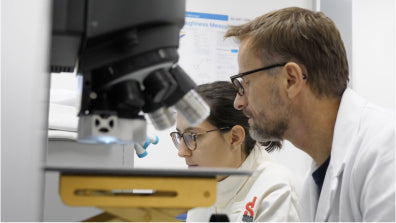
Tefal: Secrets of Manufacture
Discover the fascinating process whereby our experts transform simple aluminium discs into frying pans and saucepans.
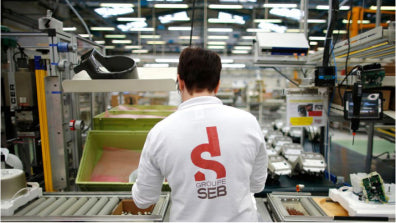
Tefal: A Brand Made in France
Find out more about our know-how, teams and values, making your everyday more simple, easier and more fun
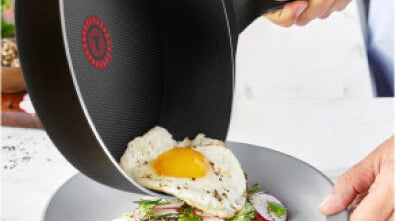
Tefal: Lifecycle, Care, Recycling
From their design to their use in our kitchens, our utensils go through some crucial stages combining know-how, innovation and quality requirements.

French Know-how in Rumilly
Tefal has put its roots down in the town of Rumilly, in the department of Haute-Savoie, on the edge of the Bauges Mountains Nature Park.


